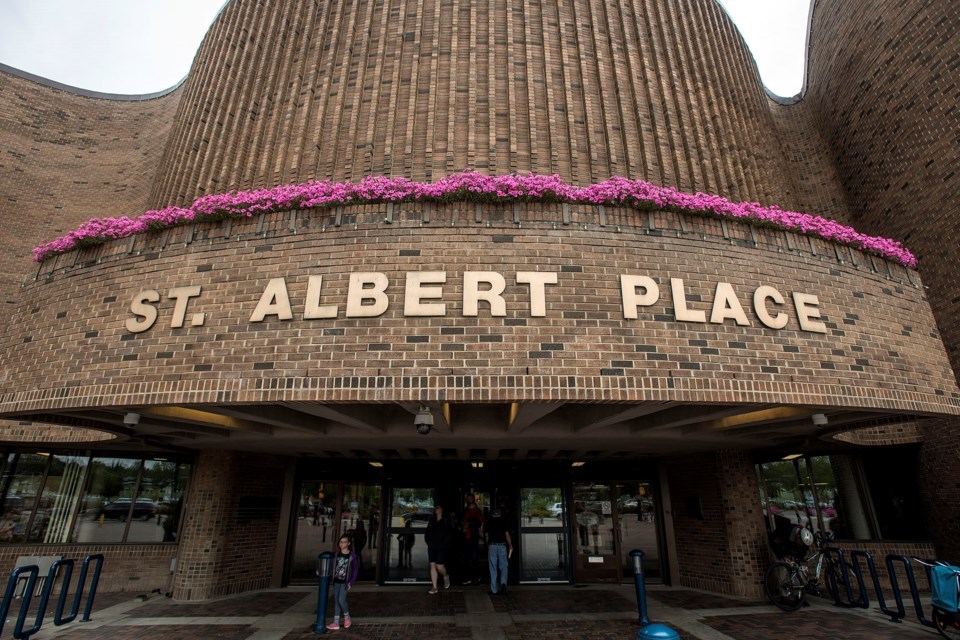St. Albert city council decided by a vote on Tuesday that their top two advocacy priorities moving forward are to obtain the necessary funding to service Lakeview Business District and to push the provincial government for increased annual transfers.
Both items have been at or near the top of council's priority list for some time, and Tuesday's vote was simply the result of an annual review of the priority list.
Coun. Ken MacKay said he was “optimistic” that funding from other levels of government would materialize during the current council term.
“Certainly we heard strong comments and support from both provincial parties during the election ... but I think what we've been trying to sell with our advocacy is that this benefits the entire economic corridor,” MacKay said.
“I'm going to be cautiously optimistic that we'll hear something maybe (in the next provincial) budget, but if not we're going to continue to advocate strongly for it because we believe that it is important not only to our community but for the entire region.”
The future Lakeview Business District, located west of Ray Gibbon Drive and north of Meadowview Drive, is a roughly 60-acre plot of land mostly owned by the city that will be St. Albert's newest industrial and commercial area.
The city has been planning for the new business area since at least 2017, and Mayor Cathy Heron and many members of council have previously cited the business park as a key opportunity for the city to generate more commercial property taxes in order to lower the tax burden being felt by residential property owners.
In 2023, about 79 per cent of the city's property tax levy is being collected through residential properties, while the remaining 21 per cent is being collected from non-residential properties. The city is trying to achieve a 70-30 tax split in the years to come.
Before any new businesses are built in the area, however, the city needs to service the land, and while an exact estimate for the cost of servicing hasn't been produced yet, Heron previously said she thought it could be as much as $80 million.
Given that $80 million is likely more than what the city pay on its own, council has been, and plans to continue advocating to other orders of government for funding support.
During the most recent provincial election, the NDP had made a campaign promise to provide partial funding, while the UCP's initial party line was that providing funding for the project would be a form of “corporate wellfare” before Morinville-St. Albert MLA Dale Nally said the party would work to secure some funding as well.
Likewise, Coun. Shelley Biermanski said she wished the funding was already secured.
“I wish it was yesterday,” she said, adding, “We get a lot of inquiries on that area; there's lots of people that are ready to jump in once it is serviced.”
“I think it's a very, very attractive location for many people.”
Provincial transfers
Council's other top advocacy priority moving forward is to push the provincial government for adequate and predictable annual funding through the Local Government Fiscal Framework (LGFF) that's set to replace the Municipal Sustainability Initiative (MSI) starting next year.
Currently, the MSI has two annual funding streams: operational and capital.
Through the operational stream, $60 million is divided amongst all municipalities across the province, while the capital stream is divided out based on how many and what kind of capital projects municipalities include in their application for funding.
This year the provincial government gave out $485 million under the capital stream, and St. Albert received just under $7.5 million.
The LGFF will work similarly to the MSI in that there will be two funding streams for municipalities each year. The $60 million operating stream will remain the same next year, however the capital stream's funding pot is set to increase to $722 million.
While the $722 capital stream in 2024 is an increase of $237 million compared to this year, the pot remains well below the $963 million that municipalities were given in 2020 and the $1.2 billion given out in 2021.
The Gazette reported in March after the provincial budget was released that city administration identified the LGFF program as the city's top uncertainty moving forward because of how much the city relies on that funding for local infrastructure.
Coun. Mike Killick said the city is hoping the provincial government will increase the amount of funding available to municipalities through the LGFF.
“Obviously more funding would be the priority from the province,” he said.
“It just aligns with all of the things that we're trying to accomplish.”
Council unanimously approved the advocacy priorities with no debate.




